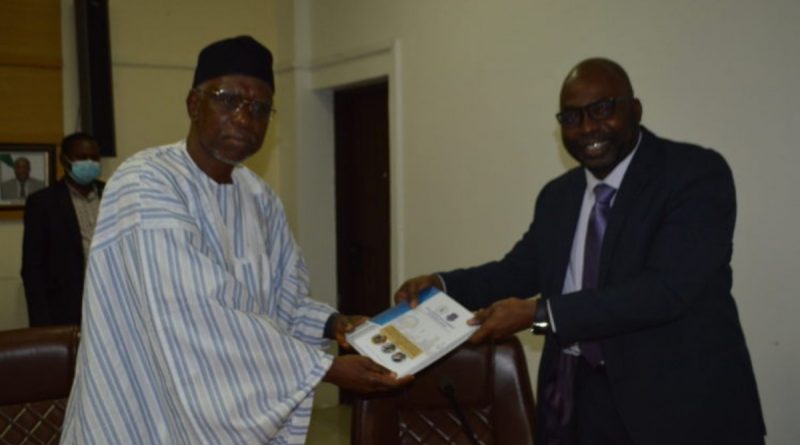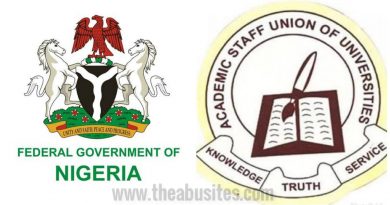Why the position of vice chancellor is keenly contested in Nigeria
By Tayo Oke
By convention, Vice Chancellors (or, President in America) manage the affairs of their institutions efficiently, diligently, and above all, quietly, without attracting attention. They simply get on with the job as it were.
They generally hope and expect that if, and when, there is a light shorn on their activity, it will be on the institution itself, its progress, achievements, and future endeavours, rather than on the personality of the vice chancellor. Any undue attention on such a peripheral issue is seen as evidence of failure and decline in the institution’s standing.
The vice chancellors are supposedly smooth operators; serious-minded, cerebral and powerful yet, rarely seen and rarely heard. It is not unusual for a student or even an academic staff to go through an entire period in the university without having a single encounter with the VC. That, in a nutshell, is the universal norm that has been turned on its head here in Nigeria.
A vice chancellor in Nigeria, is, (for want of a better word), HE, who must be obeyed; an emperor with a sharp dagger in his hand. When a VC sneezes in a Nigerian university, everybody catches the flu. Beneath the veneer of resume and selection process, a VC assumes his throne through main plots, sub-plots, intrigues, and chicanery wrapped in a load of skulduggery.
In Nigeria, a vice chancellor rule rather than administers. Such is the polarising position of the VC nowadays, that at the end of his first term, there is a clamour for his reign to end or be extended almost in equal measure. What really is the apple of discord?
Let us wade through this mind-boggling quiz by extrapolating anecdotal evidence from various institutions across the country without mentioning names. This is important in order to avoid distraction from the issue at hand. All the scenarios painted here would have been experienced by many universities to varying degrees.
First, the main attraction in the position of the vice chancellor in this country is the power of patronage it bestows. Universities are categorised into: federal, state, and private, based on funding; the Federal Government, state government, and private individuals in that order. For the federal and state universities, the VC’s position is akin to that of a senior civil servant.
The President of the Federal Republic of Nigeria and state governors double as Visitors (i.e. proprietors) of federal and state universities respectively. They have the ultimate power to hire and fire. The vice chancellors of private institutions, by definition, are answerable to their private owner(s). In other words, a VC’s appointment in a public university is ‘political’ and has become rather more so these days.
Such appointments sadly mirror the ‘isms’ and ‘schisms’ in the wider society. Long gone were the days when it was based solely on merit. The process is now bedevilled by nepotism, ethnicity, favouritism, and clannishness. In some instances, it has become a bazaar.
A VC’s appointment in Nigeria is made on a certain understanding and an expectation of a payoff from the victor. The Visitor will casually hand the new appointee his ‘list’ of persons for preferment in the employment and deployment of personnel.
This is not to mention the award of sundry contracts. A vice chancellor would usually feel compelled to weed out ‘redundant’ personnel from a past administration, then, quickly finds himself in a vicious circle of ‘regularisation’ and ‘de-regularisation’ of appointments.
The vice chancellor does not only have to contend with the ‘list’ from the august visitor, he also needs to satisfy other similar ‘lists’ emanating from various powerful corners, who were, perhaps, instrumental to his appointment. Simply put, it is open racketeering.
That said, the most important qualification for a vice chancellor in Nigeria, today, is the ethnic, even village origin, or clan affiliation of the candidate. Perish the thought of such ephemeral considerations not mattering to anyone. It is highly unlikely these days for a non-Yoruba person to be a VC in Yorubaland. Or, an Igbo or Hausa to emerge a VC in each other’s yard without a fuss.
Not only the state of origin is taken into account, the flimsiest geographical affiliation and bloodline are also reified as pivotal. Consequently, once appointed, the VC invariably spends almost his entire time massaging various egos and benefactors. And, doing all he can to secure a second term. His eyes were completely taken off academia and diligent administration.
The rare occasions where academic qualifications come into play in the appointment of a VC appears to be when vested interests remain aggrieved, or someone having an axe to grind. Then, there is an intense search for ‘gaps’ in the candidates’ resumes.
Recently, a candidate for VC, a professor of many years standing, on a shortlist of three, was suddenly accused of not having a PhD, and therefore would not be able to preside over the award of PhDs in the university. It is being argued that the candidate’s name should be expunged from the shortlist for that reason. How crass? How mendacious!
Do they know how many successful football coaches around the world who, themselves, never played the game on a professional level? Or, how many successful tennis coaches who, themselves, never played tennis at any level before? Think of the Williams sisters, who dominated the tennis world for almost two decades.
They were coached by their father who only studied the game by watching videos and reading coaching manuals. Do they know how many successful hospital administrators who, themselves, never studied medicine? You got the drift? Having a PhD for a senior academic position is useful, but its importance is highly overrated in this country.
For starters, a PhD title is not a mark of genius; it is an attestation of the ability to conduct research at an advanced level. Such ability can be acquired by means other than a structured PhD training. To argue against the appointment of a professor for VC, for not having a PhD, is grasping at straws really. It is specious reasoning at best, and lazy poppycock at worst.
Universities in the West are awash with outstanding non-PhD scholars and professors who are excellent and proven researchers in their field with a lot to pass on to others coming through the system. Are those hallowed institutions any less productive than Nigeria’s own dilapidated, empty shells of institutions? Can we stop splitting hairs over PhD or no PhD, please?
The position of a VC in a private university does not suffer from the same melodrama constantly witnessed in public universities, because, they are not beholden to political overlords, and entrenched vested interests. Also, the ethnic coloration of staff has yet to become an issue in those institutions.
Demand for expertise is still higher than its supply, so too is the rate of staff turnover. That said, a VC in a private university requires a different skill-set than their counterparts in public institutions. They have the triple burden of being academically sound, a good administrator, and, business savvy.
The university’s financial health and balance sheet weigh heavily on their minds in a way unfathomable in public universities. They are more consumer-oriented because they have no choice. Above all, there is no government rescue package for an insolvent private university. Only pity.
By that logic, some of them sometimes go too far, bending the rules, sacrificing academic excellence on the altar of consumerism in a garbage-in-garbage-out sort of fashion. Who becomes a VC in a private university thus also acquires special significance, for entirely different reasons, although no less troubling.
I very much hope that this piece is not taken as casting unwarranted aspersions on the academia in this country, as it contains some painful truths we must face up to, if the institutions are to come out of the doldrums they are currently in.
Tayo Oke can be reached on drtayooke@gmail.com








